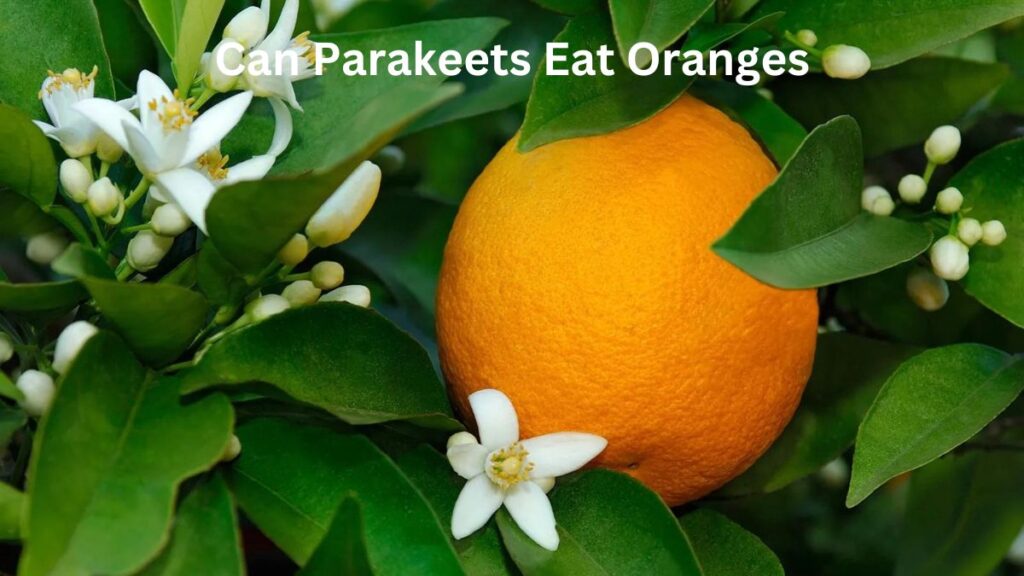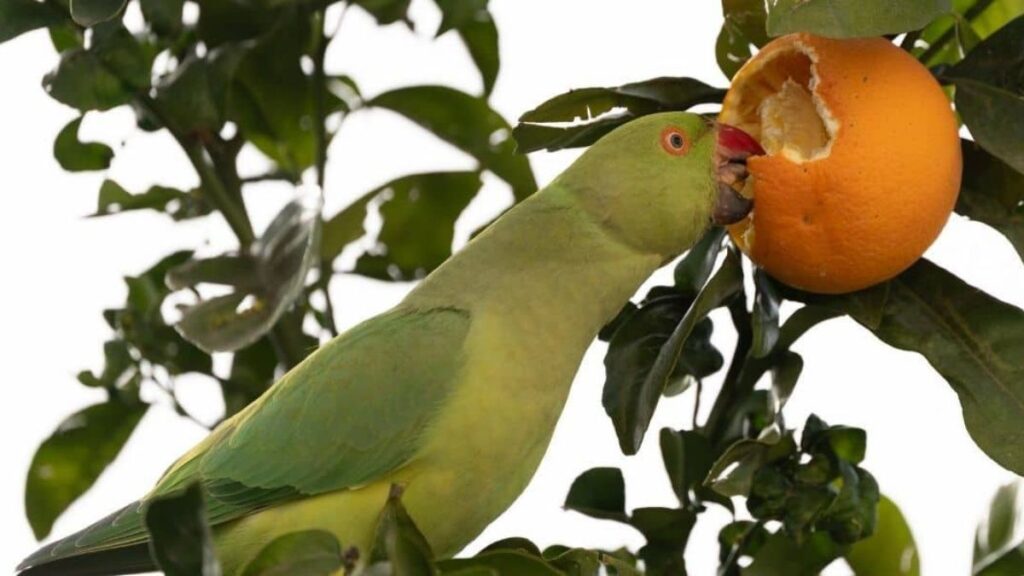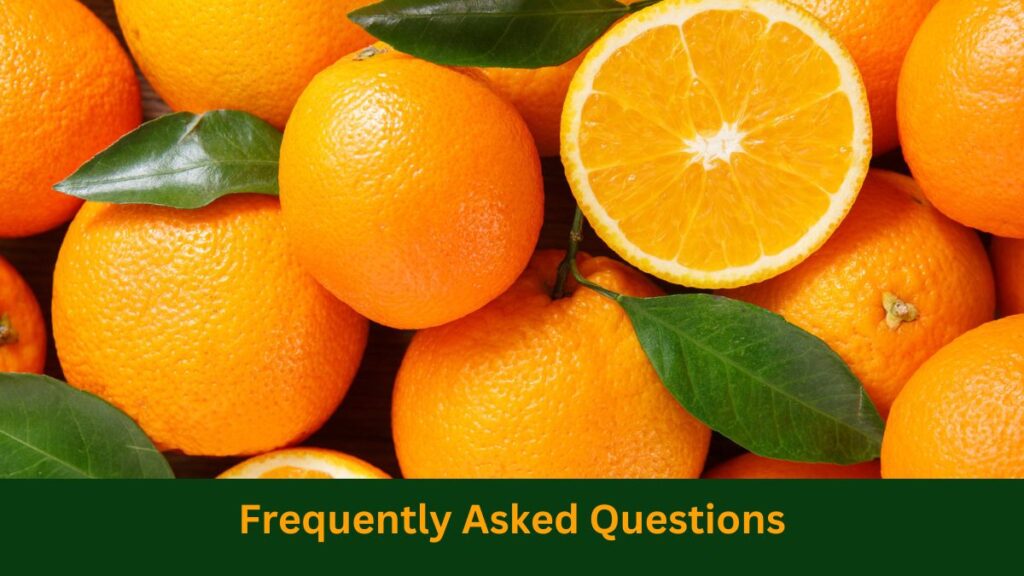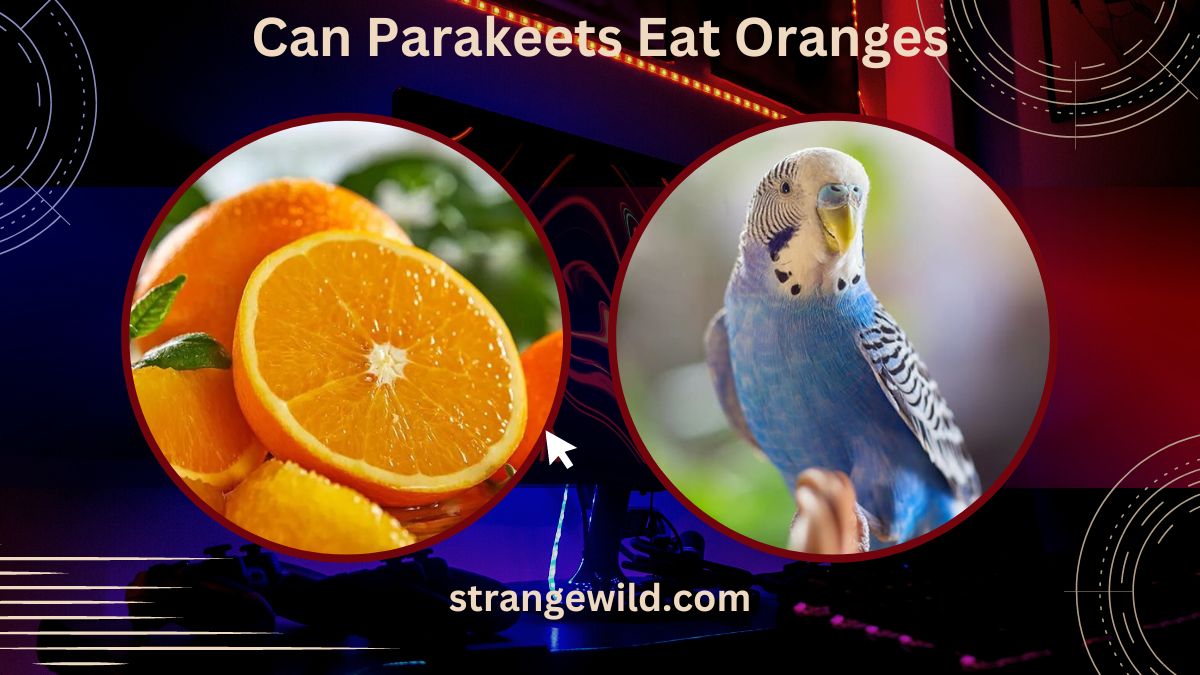Can Parakeets Eat Oranges? Is This Food Safe To Offer
Can parakeets eat oranges? Making ensuring your parakeet eats nutritious foods is a primary priority as a conscientious owner. You’ll surely wonder a lot about whether or not a certain dish might be healthy or perhaps hazardous. However, what about fruits, particularly oranges? Are these okay to give out as treats or are they best avoided? I looked into whether this fruit might be a part of a parakeet’s diet for a while. Everything you ought to know can be learned right away. Can parakeets eat apples?

Can parakeets eat oranges, then?
Orange consumption for parakeets is both absolutely safe and healthy. Oranges include a variety of important vitamins and minerals, all of which are good for your bird’s health. Oranges should never be the only food given to parakeets, which need a diversified diet. Instead, they ought to be used sparingly and as a treat. If the high sugar content is not controlled, problems may arise. Can parakeets eat bananas?
Parakeets require a consistent diet of carefully prepared pellets since this gives them all the nourishment they need for a long and healthy life. This kind of food should make up about 75% of the diet. In addition to eating a balanced diet, parakeets thrive on diversity, so this is a great way to round out the diet.
Particularly, these birds thrive on and should eat more vegetables than fruits in their diet. They need vegetables to make up roughly 10–20% of their overall energy intake, with safe fruits making up the remaining 5%. Because they prefer sweet foods, parakeets will consume any type of fruit if it is provided. After all, they are tropical birds.
There are many advantages to attempting to emulate their local diet and cuisine.
These vibrant birds appreciate the flavor of fruits that most of us have never ever heard of in the wild! Of course, it would be ridiculous and nearly impossible to follow this diet exactly. In light of this, you want to encourage your parakeet to sample as many various fruits and veggies as you can.
The majority of birds enjoy fruit and are gregarious eaters. Fruit is surely one of those foods you can eat with your human companions, which is why many parakeets enjoy doing so. Oranges are a citrus fruit rich in vitamin C, fiber, vitamins A and B, potassium, and other nutrients, thus feeding them to your parakeet has many advantages. It’s important to minimize this citrus fruit in your bird’s diet because they are also extremely high in sugar.
The advantages of eating oranges are obvious, and the variety of vitamins and minerals can improve your parakeet’s health in the following ways: It supports a healthy brain, enhances eyesight, strengthens the immune system, and reduces constipation. Oranges are also antibacterial, anti-inflammatory, and antioxidant! Let’s go over the advantages of giving your parakeet oranges in more depth. The potential risks, whether or not you can provide the peels, how much orange is safe to offer, and the ideal way to feed it to your bird will also be covered. So make sure you read on to gain all the information you require about feeding this fruit!
Are Oranges Healthy For Parakeets?
Oranges are undoubtedly a fantastic source of vitamins C, A, and B. Additionally, the fruit has a lot of potassium and dietary fiber. It is completely safe and good to offer oranges to your parakeet in moderation.
Let’s examine this incredible fruit’s complete nutritional profile in more detail now:
Oranges’ Nutrition
| Name | Amount |
| Energy | 8 Calories |
| Protein | 0.16 g |
| Carbohydrates | 2 g |
| Of which sugars | (1.59 g) |
| Fiber | 0.408 g |
| Calcium | 6.8 mg |
| Magnesium | 1.7 mg |
| Potassium | 30.8 mg |
| Selenium | 0.085 µg |
| Vitamin C | 9.04 mg |
| Vitamin A | 1.87 µg |
| Folate | 5.1 µg |
Per section/slice (17g).
Several of the numerous advantages of these minerals for your bird’s health are listed below:
- The immune system is strengthened because vitamin C encourages the growth of white blood cells in the body.
- Along with copper, folate, and other nutrients, oranges include vitamin A, which strengthens the immune system and keeps it functioning at its best. Additionally, vitamin A benefits eye health. It enables the cornea to operate properly and shields the eyes from aging-related problems.
- Oranges’ high fiber content promotes a healthy digestive system and aids in preventing constipation.
- Oranges include folate, which assists the neurotransmitters in the brain in their appropriate operation.
- Orange polyphenols help to maintain a memory.
However, more does not always equal better. Oranges are high in vitamins and minerals that have anti-inflammatory, antioxidant, and antibacterial properties that are good for your health, but they are also heavy in sugar. Therefore, it’s crucial to limit your bird’s fruit consumption because too much sugar is bad for a bird’s health. When this fruit is offered too frequently or in excess, potential drawbacks such as weight gain, irregular energy levels, and food addictions may result.

Are Oranges Risky For Parakeets?
Oranges are not harmful to parakeets; they can eat the entire fruit without any problems. This also contains the peel, although it is not advised (as we will soon explain why below)
It makes sense to be concerned about giving fruit to your parakeet because some fruits contain harmful toxins. All things considered, feeding parakeets only oranges could be harmful because parakeets require a diversified diet. Along with their staple of pellets, your parakeet needs to sample as many fruits and veggies as they can. Your parakeet will quickly run out of the vitamins and minerals it needs to stay healthy if it only eats one kind of food.
A parakeet can live up to 8 years on average, and if given proper care and attention, they may even live longer. You must take all necessary measures to guarantee your bird has a nutritionally full diet while keeping in mind the bird’s longevity. One thing to keep in mind is that an orange has a water content of over 80%, making it one of the fruits with the highest water content.
Your parakeet’s pee may vary if it consumes watery fruits. When your parakeet consumes oranges, you can notice more urine or a change in the color of the urine; you might also notice softer excrement. You can relax knowing that a change in your parakeet’s pee and feces after eating fruit like oranges is very natural, and the soft feces are not diarrhea.
It’s a normal aspect of your bird’s waste system and is referred to as polyuria. Last but not least, cutting an orange into manageable-sized pieces is always a smart idea. Making the fruit simpler to handle and digest is advised because danger can arise in the form of choking.
Can Parakeets Eat Orange peels?
Feeding orange peel to parakeets is not advised. Although some parakeets may consume it, commercial oranges frequently contain toxic pesticides and other pollutants.
Pesticides in orange peel may be consumed by your bird and may be dangerous to it. It is therefore advisable to purchase organic oranges because there is no assurance that washing the fruit’s exterior will be sufficient to remove contaminants. In general, it’s recommended to remove the skin of citrus fruit and serve the fruit whole. Most birds, including parakeets, do not do well with pesticides.
Numerous pesticides, fertilizers, and herbicides frequently employed in industrial agriculture are posing a threat to the health of many birds. Studies have revealed that pesticide-contaminated diets can cause birds to become anorexic. It can ultimately be fatal and cause severe weight loss.
To what extent should I feed oranges to my parakeet?
Oranges are OK as a treat every now and then, but they shouldn’t be a regular part of your parakeet’s diet.
For such a tiny bird, even a small portion contains a significant amount of sugar. Each day, parakeets must sample a wide variety of fruits and vegetables, consuming more vegetables than fruits. The most important thing is that your parakeet consumes pellets, which are their main source of food and provide them with the whole nourishment they need for a long and healthy life.
Keep in mind that your parakeet’s diet must contain between 10% and 20% veggies when giving it snacks. Additionally, 5% of the diet should include fruit; feeding a parakeet only oranges is not recommended. Oranges can certainly be included in a salad with other fresh fruits and vegetables.
How to Feed Parakeets Oranges
Slowly and gradually introduce oranges to your parakeet when doing so for the first time.
Slice the orange into small pieces after peeling. This can be given to them orally or even put in the cage with them. Be patient and think about hand-feeding your parakeet if you see that it is initially scared of the unfamiliar fruit. Ascorbic acid content is extremely high in oranges (aka vitamin C).
This acid might be problematic in excess. The trick is to provide oranges in moderation, and you can occasionally add them to your pet’s diet as a treat. If you first dilute the juice with water, you can give orange juice to your parakeet. Any orange juice you give your parakeet must be freshly squeezed by your hands, not from a packet. Additionally, their water shouldn’t ever entirely replace it. Can parakeets eat oranges?
You do need to look for a higher-quality brand because the preservatives in packed orange juices could also be troublesome. As long as the dried oranges are free of sulfides and sulfates, you can give them to your parakeet. Oranges can also be dried at home. Oranges can be sliced thinly and baked for a couple of hours on a baking sheet covered with parchment paper. Never serve any moldy or damaged orange portions, and if you do, be sure to use organic oranges and wash the peel well to get rid of any dirt.
What Other Nutritious Substitutions For Oranges In A Parakeet’s Diet?
What other nutritious foods can replace oranges in a parakeet’s diet now that we know they should only be offered to them as treats? Pellets are one of the most nutrient-dense foods that can be given to parakeets. The best approach to provide them with all the nutrition they need in one meal is to feed them pellets every day. The majority of knowledgeable parakeet owners agree that approximately 75% of your feathered companions’ normal diet should consist of pellets.
Although seed mixes are what most owners opt for, they may not contain all the nutrients your bird needs to be healthy and may be excessively rich in fats and carbohydrates. Your parakeet’s diet should comprise fresh veggies about twenty percent of the time to prevent this. In addition to being a delightful snack for your feathered friend, vegetables are also a good source of vitamins and minerals.
However, you should be careful not to overfeed your parakeets with these vegetables since they may result in runny droppings. Fruits should make up the remaining portion of your parakeet’s diet because they include important nutrients and minerals that support the health of your pet bird. Nutritionists advise feeding your parakeets fresh fruit as up to 15% of their daily diet, and oranges are at the top of the list.
These ought to be provided sparingly and only as treats. While you can give them some orange pieces, you can also give them other fruits instead, such as apples, tangerines, watermelons, raspberries, bananas, cherries, apricots, mangoes, and pineapples. To safeguard their safety, be careful to avoid giving them seeds when giving them apple and watermelon chunks.
FAQs on Can Parakeets Eat Oranges?

Orange Peels: Can Parakeets Eat Them?
Orange peels are inedible to parakeets. Your parakeet shouldn’t be given an entire, unpeeled orange. Instead, you ought to slice it first. Oranges with the peel on should be given to your parakeet in tiny amounts. To get rid of any chemicals and pesticides on the fruit, you should wash it first. They won’t eat the skin; they will only consume the juicy fresh.
Orange Seeds Can Parakeets Eat?
If the orange seeds are not removed from the fruit, parakeets can consume them. However, orange seeds may result in the harmful development of cyanide in the intestines of your parakeet. As a result, you should always be sure to remove the orange seeds before giving them to your pet companion
Are Wild Parakeets Orange Eaters?
The majority of parakeets are ground feeders since they are granivores and consume grasses and seeds in the wild. To meet their nutritional demands, they also like eating fresh fruit in the wild. One of their favorite fruits is the orange.
Finally: Can Parakeets Eat Oranges?
One of the safest and healthiest fruits to give your parakeet is the orange, without a doubt. It is packed with vitamins and minerals that are great for your bird’s health. Undoubtedly, you can cut an orange segment into little pieces and serve it alongside other fruits and vegetables. If possible, hand-feeding is an option for young parakeets or parakeets trying oranges for the first time. Can parakeets eat oranges?
The greatest oranges for your parakeet are those that are organic because they don’t include any of the dangerous pesticides and other chemicals that are typically sprayed on the fruit. It’s best to always give your parakeet the interior of an orange. It’s crucial that you don’t give your parakeet too many oranges.
Oranges are best consumed as a treat and in moderation, because they are high in ascorbic acid and fructose, a fruit sugar. Fruits should never make up more than 5% of the overall nutritional intake, and they also need variety. Try to always keep in mind that these birds are tropical. This is reflected in the natural diet that they eat in the wild.
It would be beneficial if you attempted to replicate their normal diet as precisely as you could, even though it would be difficult and not fully practical.





